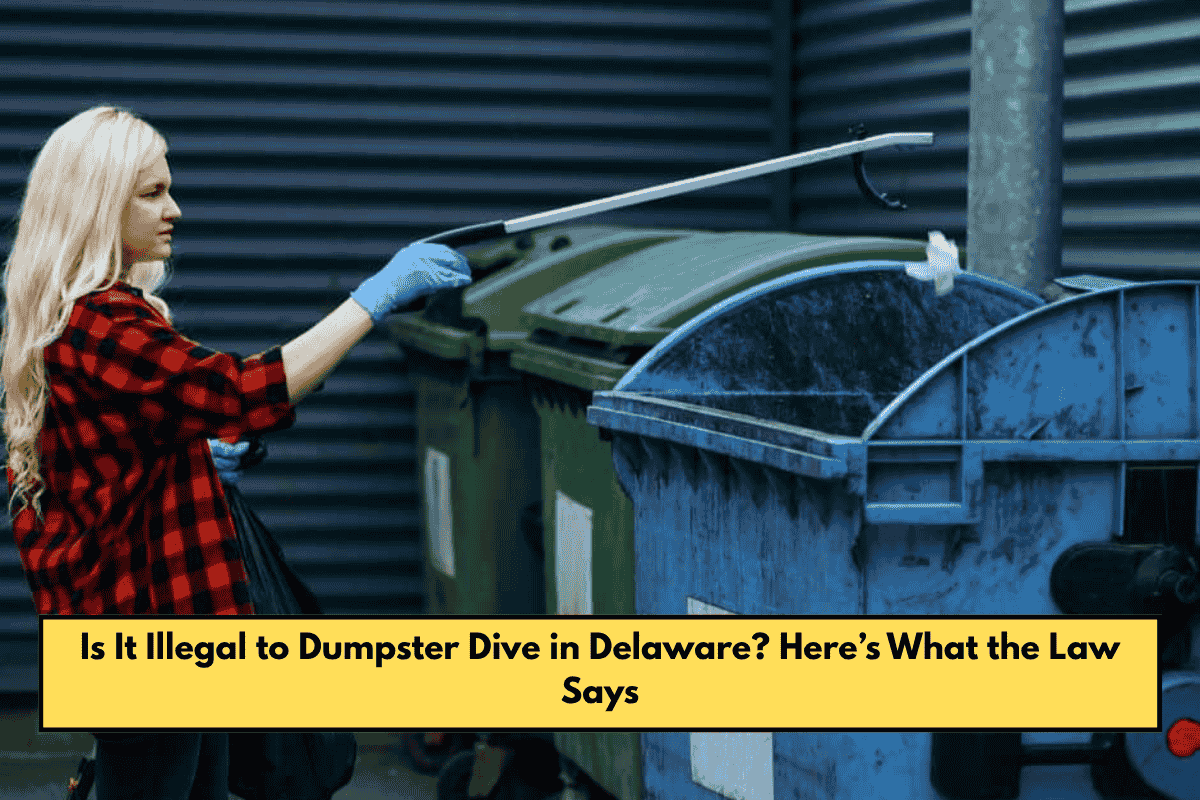Dumpster diving—the act of searching through trash bins or dumpsters for discarded items of value—has gained popularity for reasons ranging from environmentalism to economic necessity. But is it legal in Delaware? The answer is nuanced and depends largely on where and how you dive.
Statewide Law: No Blanket Ban
There is no statewide law in Delaware that prohibits dumpster diving. In fact, dumpster diving is technically legal in all 50 states due to the 1988 Supreme Court decision in California v. Greenwood, which held that trash left for collection in public spaces is considered abandoned and can be searched without violating privacy rights. For Delaware, this means there is no general prohibition against rummaging through trash containers to find discarded items.
Local Ordinances: The Real Deciding Factor
While state law does not ban dumpster diving, local city and county ordinances often impose restrictions:
- Wilmington: Prohibits rummaging through garbage containers without the owner’s consent, effectively banning dumpster diving on private property. Public area dumpsters are generally allowed.
- Newark: Bans tampering with any waste containers, including dumpsters, without authorization from the owner.
- Dover: Does not allow anyone to disturb, remove, or scatter waste placed out for collection without permission, restricting dumpster diving in most bins and dumpsters.
- New Castle County: Also prohibits rummaging through waste containers without consent.
Bottom line: Dumpster diving is generally legal on public property in Delaware, but diving on private property or in private dumpsters requires the owner’s permission. Always check local ordinances before diving.
Trespassing Laws: Private vs. Public Property
The key legal distinction is between public and private property:
- Public Property: If a dumpster or trash bin is placed on a public curb or in a public area, it is usually legal to search through it.
- Private Property: Entering private property (such as behind a store, inside a fenced area, or where “No Trespassing” signs are posted) to access a dumpster is illegal and can result in trespassing charges. Even if the dumpster itself is not locked or marked, the property line matters.
A notable case in Delaware involved a woman arrested for third-degree trespassing after searching a grocery store dumpster, highlighting that entering private property—even with good intentions—can lead to criminal charges.
Other Legal Risks and Considerations
- Signs and Locks: If a dumpster is locked or has “No Trespassing” or “No Dumping” signs, it is off-limits. Tampering with locks or ignoring posted warnings can result in fines or arrest.
- Disorderly Conduct and Littering: Even if dumpster diving is allowed, making a mess, causing a disturbance, or leaving trash scattered can lead to citations for disorderly conduct or littering.
- Theft of Recyclables: Some areas consider taking recyclables from bins as theft, especially if the materials have value and are intended for municipal collection or resale.
Safety and Liability
Dumpster owners may enforce strict no-diving policies to limit liability for injuries or illness resulting from dumpster diving. If you are injured while diving on private property, you may not have legal recourse and could even face charges yourself.
Best Practices for Dumpster Diving in Delaware
- Always check local city and county ordinances before diving.
- Never enter private property or fenced-in areas without explicit permission.
- Respect posted signs and locked dumpsters.
- Keep the area clean and avoid making a mess.
- Be aware that even legal dumpster diving can attract police attention if complaints are made.
Dumpster diving is legal in Delaware as long as you respect property boundaries and local laws. The safest places to dive are public dumpsters or trash left on the curb for collection. Diving on private property without permission is illegal and can result in trespassing charges. Always research local ordinances and seek permission when in doubt to avoid legal trouble.
Sources
- https://bsafealarms.com/uncategorized/is-dumpster-diving-a-crime-in-delaware/
- https://www.rolloffdumpsterdirect.com/dumpster-diving-illegal/
- https://www.findlaw.com/legalblogs/criminal-defense/is-it-legal-to-dumpster-dive/
- https://scrapsafari.com/dumpster-diving-in-delaware/
- https://www.findlaw.com/injury/torts-and-personal-injuries/dumpster-diving.html















